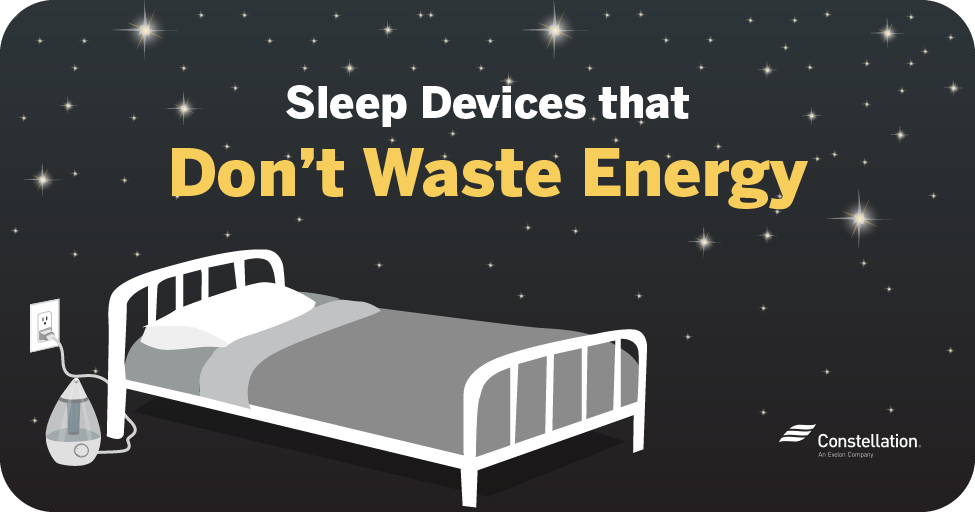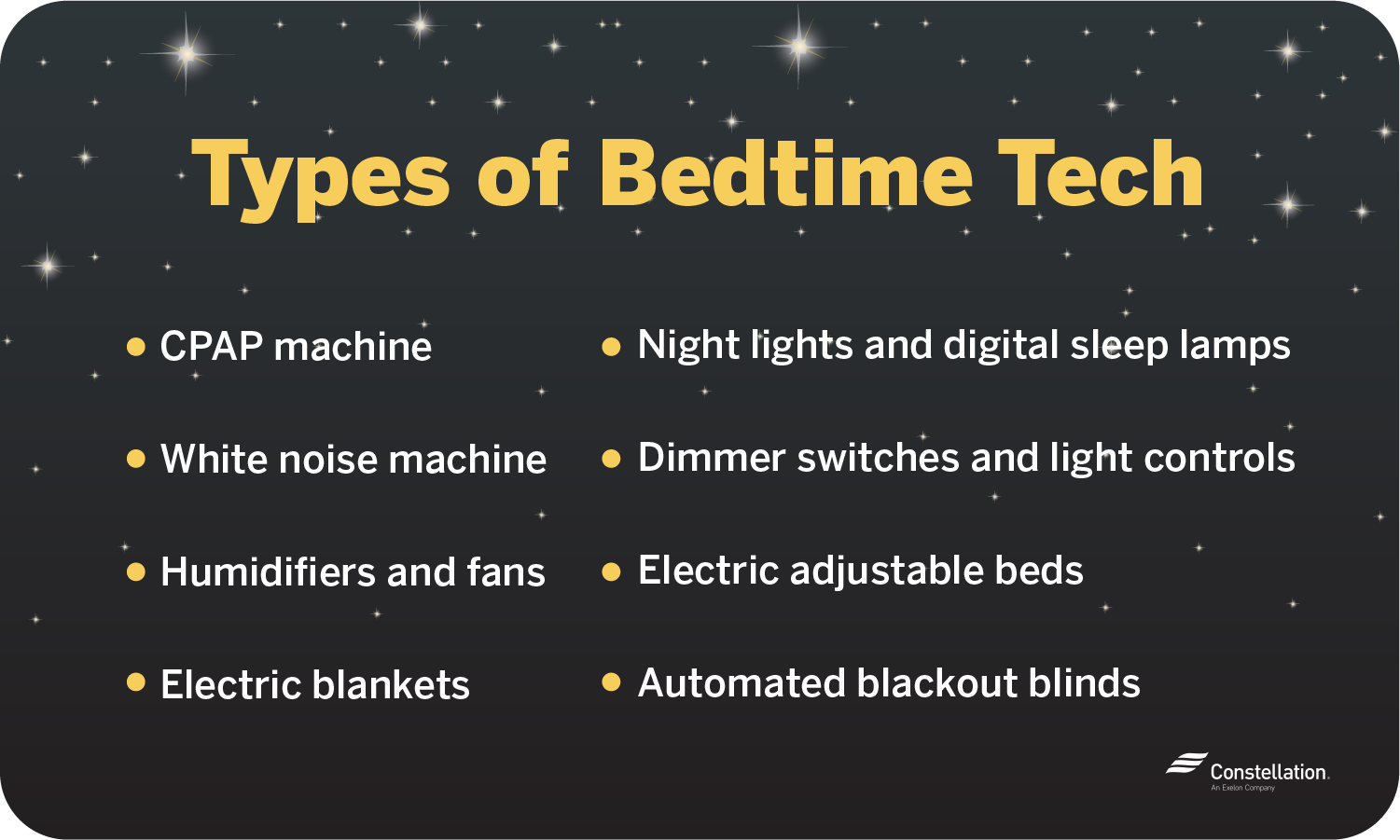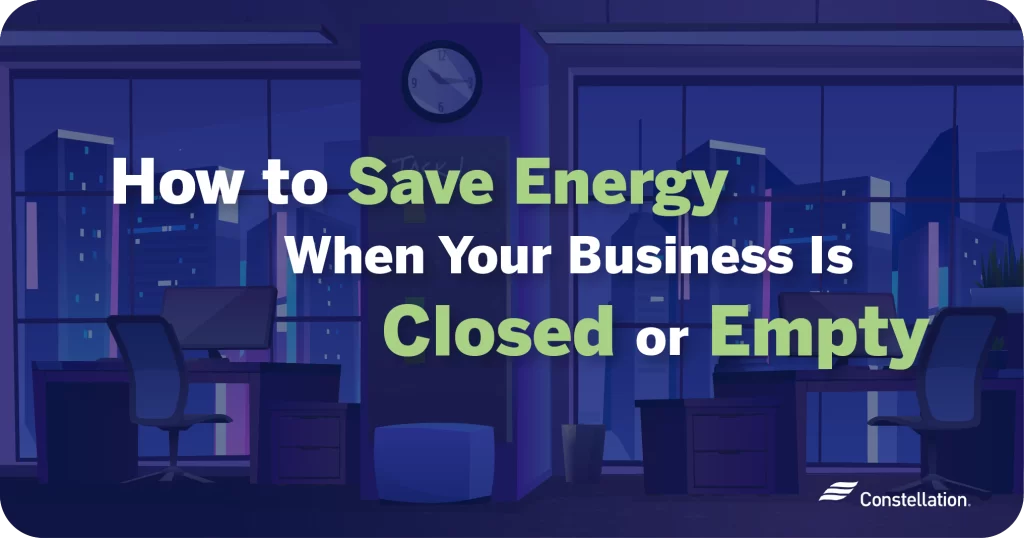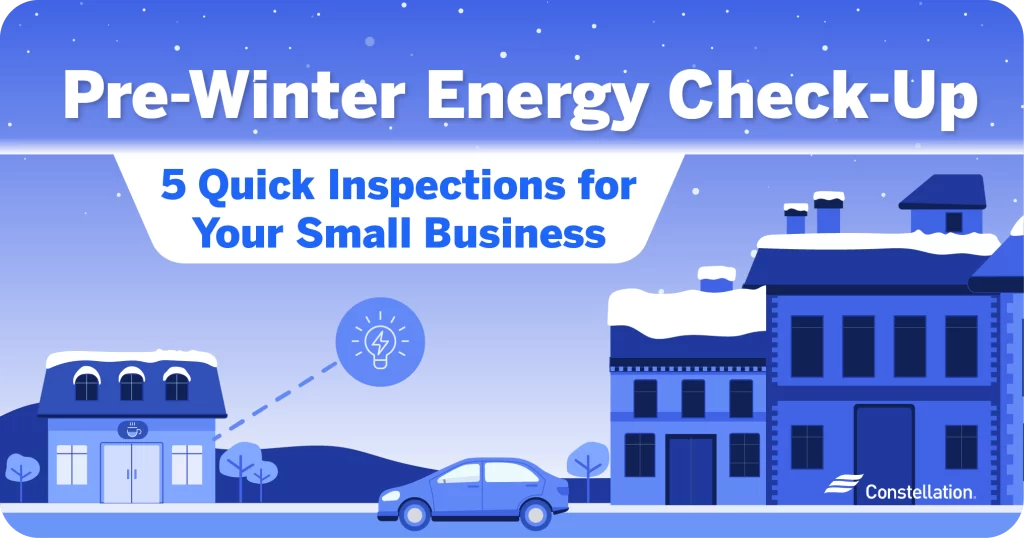
- Category:
Home Energy Savings -
Last updated:
March 28, 2022
Sleep Devices That Don’t Waste Your Energy
Sleep devices offer the promise of quiet rest — relief from the buzz of our high-tech world that can make us a bit frazzled at the end of the day. Artificial light throws off our bodies’ biological clocks.
“Blue light” is on the shortwave/high-energy end of the visible light spectrum: the kind of light emitted by energy-efficient light bulbs and computer and phone screens. Light at the blue wavelength is helpful during the day because it boosts energy and mood.
At night, however, staring into the blue light of a phone or computer screen can disrupt sleep. That’s where energy-efficient sleep technology steps in.
What is sleep or bedtime technology?
Sleep technology and bedtime devices help us fall asleep, stay that way and support our comfort and health during this vital mind-body state. As research uncovers more of the mysteries behind a good night’s sleep, a wide variety of sleep technology devices have come on the market:
- CPAP machine. This sleep device provides continuous positive airway pressure (hence CPAP) so that you breathe regularly and easily during sleep. People who snore or who have sleep apnea can benefit tremendously.
- White-noise machine. White-noise sound waves are equally intense across different frequencies. For the layperson, think static, the hum of your car on the freeway or distant ocean surf. Various studies have shown that white noise can cancel out annoying sounds while helping us fall asleep faster and stay asleep.
- Humidifiers and fans. Environment plays a huge role in sleep health. You might not think of humidifiers and fans as sleep technology, but these devices can have a profound impact on the complex process. Humidifiers prevent dry throats and hacking coughs. Fans circulate fresh air, keeping your environment oxygenated and at an even temperature. The gentle hum of these sleep devices have the added benefit of creating sleep-inducing white noise.
- Electric blankets. We do not sleep well when our bodies are cold. Studies have shown that even mild cold stress increases wakefulness and affects sleep stages, decreasing slow-wave and REM (rapid eye movement) sleep. Studies of electric blanket use show that this sleep device can relieve cold stress in low-temperature environments.
- Night lights and digital sleep lamps. Night lights help you navigate the room when you wake up in the dark, but studies show having lights on at night can hamper sleep quality. New devices use the long-wave red spectrum of light to minimize their effect. Digital sleep lamps and energy-efficient lighting fixtures can be programmed to slowly dim at night to trigger the sleep response, and then gradually brighten in the morning to wake you up.
- Dimmer switches and light controls. Smart homes automatically adjust dimmer switches and light controls to change light wavelength and intensity through the day. They’re an example energy-efficient technology to help you sleep by reducing blue light in the evening and gradually dimming according to a schedule you set, preparing your body for a good night’s sleep.
- Electric adjustable beds. Proper support of your spine and neck are crucial to getting the sleep you need. The use of adjustable beds has been shown to improve sleep quality for people of any health status, across all ages. Modern electric beds offer a complete, customizable sleep experience, going beyond position to offer firmness, massage and heat settings.
- Automated blackout blinds. These sleep devices do more than block out the street lights shining into your eyes all night. They help your body with a natural sleep cycle, closing according to your schedule and gradually allowing the sunlight in when morning comes to gently wake you.

While you were sleeping: The hidden costs of sleep technology
The sleep devices we’ve reviewed above all use electricity. For all their benefits, they have costs. You can calculate the energy requirements of your bedtime technology using this handy appliance energy calculator. It’s important to consider energy-efficient sleep technology and to develop good habits in the use of bedtime devices at night.
The biggest mistake people make is failing to turn them off in the morning. Running the electric blanket and leaving the white-noise machine on all day wastes power and reduces their life spans. Many devices continue to draw power even in the off state, so unplugging in the morning is a good habit to acquire.
7 Tips to reduce the energy cost of bedtime devices
Because a good night’s sleep is important, chances are that you’ll be using your bedtime technology every night. With constant use, power use really adds up. Here are some tips to increase your energy efficiency and reduce your sleep technology energy costs:
1. Look for energy consumption labels on the product.
When shopping for devices, energy consumption labels can help you compare and choose the most energy-efficient sleep technology. The labels typically give you a range between the highest and lowest energy consumption to make it easier to assess energy cost and efficiency when shopping.
2. Consider choosing smart devices, plugs and switches.
One of the benefits of smart lighting and smart devices is that they can help you conserve energy. Smart homes and connected technology optimize operation of your devices for energy efficiency and relieve you from having to remember to turn them off.
3. Look at the features and specifications.
Each category of device offers a number of different options. Consider your needs and avoid paying for features you don’t need, especially features that can also run up energy consumption. Some features help you control energy use, like smart automation and built-in shut-off mechanisms. Also take a look at specifications, particularly energy usage, to select units that are most efficient.
4. Operate your bedtime devices efficiently.
Energy-efficient sleep technology isn’t so efficient if you don’t use it thoughtfully. Don’t operate devices at max power unless you need it. Turn them off when not in use, such as when you wake up in the morning. Keeping devices clean further improves efficiency.
5. Choose LED lights for your bedtime lamps.
Using light-emitting diode (LED) technology is one of the most energy-efficient actions you can take today. Comparing LED vs. CFL bulbs, LED lights last longer, are less prone to breakage and offer better light quality, with filters that reduce blue light. Consider connecting them to smart plugs to automatically dim and switch off according to your schedule.
6. Unplug bedtime devices that you don’t use.
Many electronic devices are energy vampires, sucking down power even when off. Idle, plugged-in appliances can increase your power consumption by up to 23%. Unplug devices you’re not using to maximize your savings.
7. Use a power strip to prevent standby costs.
Unplugging devices one by one can be a chore. Consider grouping devices — for example, your television, DVD and game system — onto one power strip. With one click, you can conveniently turn them all on and off as needed, saving you money and effort.
Put your mind to rest with energy-efficient sleep devices
Energy-efficient sleep devices can enhance your sleep and quality of life. With careful selection, efficient use during low-cost nighttime hours and making sure they don’t run all day, you’ll ensure that your sleep devices can also give you peace of mind. That’s smart home energy saving that really pays.




